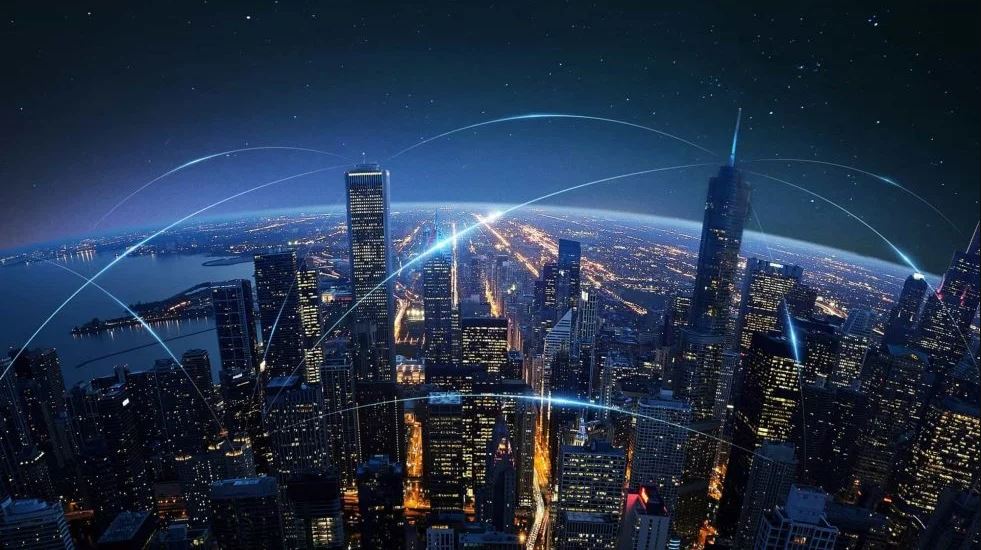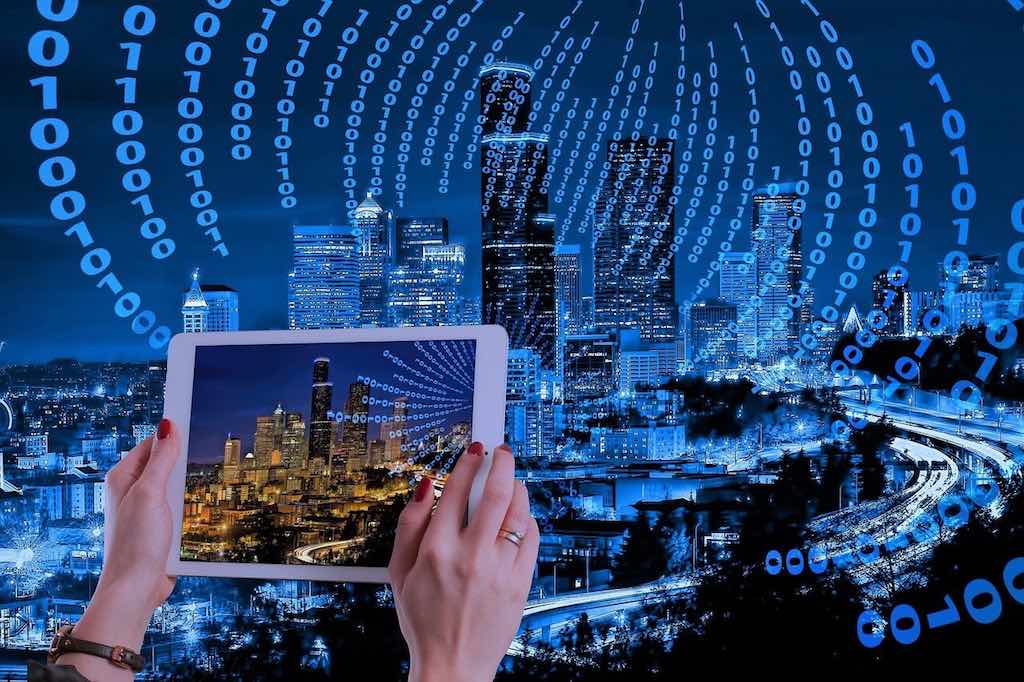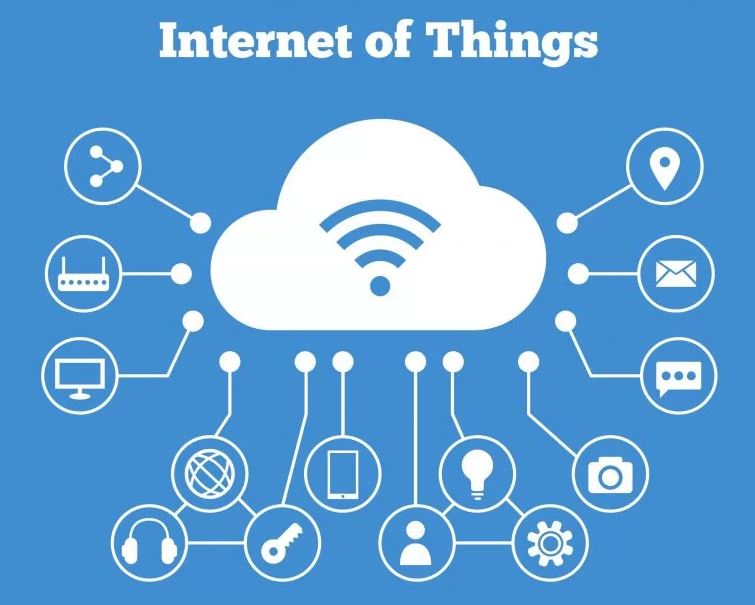Turn your city into a smart city

Guide to turning your city into a smart city
Smarter, more sustainable urban living is becoming increasingly critical as cities continue to grow and evolve.
Through the boom in technology and the Internet of Things (IoT), cities can evolve into “smart cities”, where data, connectivity and innovation come together to improve the quality of life for residents.
From cutting carbon emissions to upgrading transport, smart city technology is revolutionising the way people live, work and interact with their urban environments.
Technology takes centre stage in this guide to turning your city into a smart city because technology is clearly evolving year after year, transforming the daily lives of people, and cities are evolving as well.
When we say smart city we mean cities that incorporate technology that improves urban management and people’s quality of life.
We know that when it comes to understanding and developing each city, the tech used, the environment and its relationship with local citizens will be completely different.
Therefore, the impact of technology coupled with urbanisation is making it increasingly necessary to transform cities into smart cities.
Advantages of turning your city into a smart city

Smart cities offer a series of advantages over traditional cities. Primarily, they can improve the quality of life for residents by delivering more efficient and personalised services.
For example, citizens in a smart city can get personalised traffic alerts and transit routes based on their individual needs. Smart cities can also improve public safety by leveraging technology to monitor and prevent crime.
Plus, smart cities have the potential to be more efficient in how resources are used, lowering costs for both citizens and the local government.
For example, a smart city can deploy sensors to monitor water use and detect leaks, potentially reducing maintenance and upkeep costs. Smart cities can also become more sustainable by harnessing green and renewable technologies to reduce their carbon footprint.
Technologies for turning your city into a smart city
Smart cities are using a range of technologies to improve urban life. One of them is the Internet of Things (IoT), a network of interrelated devices and sensors that connect and exchange data in real time.
This may include traffic sensors, air quality sensors and lighting sensors.
Another technology, artificial intelligence (AI), can help you make more informed decisions by analysing massive amounts of data.
AI can include machine learning algorithms that can predict traffic, water and energy usage in the city.
Cloud technology is also used in smart cities to store and process large amounts of data. This might include using cloud platforms to store data from sensors and other IoT devices.
Companies that are helping to transform cities into smart cities understand that noT all technological advances lead to what is regarded as a smart city, as we’ll see in the following 10 features that help turn your city into a smart city.
1. CONNECTIVITY:
There are companies that build and maintain wireless infrastructures in the city.
One of the world’s leading firms is the France-based SigFox , an alternative network for the Internet of Things (IoT), which builds wireless networks to connect low-power devices (electricity meters, smart watches, household appliances, etc.) that are always on and transmitting small amounts of data.
Primarily in the IoT, they can get a setof instructions from the server or the cloud to perform a certain function.
It is an important component in turning your city into a smart city.

2. INTELLIGENT MOBILITY:
There are companies that have developed alternative transport solutions to make traffic flow more smoothly.
A great example is electric bike or scooter rentals (like VOI, TIER and LIME) that have been popping up on every corner of cities lately.
Companies that are in the process of developing self-driving vehicles are perceived as contributing to intelligent mobility in terms of both distribution and private vehicles.
3. ENERGY RESOURCE MANAGEMENT:
These are companies that are working to boost energy effectiveness and efficiency, like in the field of renewable energies, for example (Ethosgen and Ampere Energy).
Artificial intelligence is progressively being used to manage networks such as electricity grids, which would allow the analysis of household consumption and consequently manage devices like a home’s thermostat remotely.
4. PARKING IN A SMART CITY:
Some companies are taking advantage of these technological advances to implement more efficient parking space management in cities.
One example is WeSmartPark, an app created in Spain that now has versions in cities including Barcelona, Madrid and New York; this is an online platform where owners can rent out their parking spaces.
5. WATER MANAGEMENT:
Water resources are limited and optimised management is the key to city development. There are companies like ACCIONA Agua and Suez, which treat, distribute and recycle water and are already making advances in this field.
These companies work witj the “Aquadvanced” tool, which makes it possible to manage a city’s drinking water network (it works with any city with a large population) in real time.
6. ROAD TRAFFIC:
Vehicle traffic management is also a defining feature of smart cities. One of the companies taking on this role is TEKIA, an engineering and consulting firm that specialises in sustainably applying new technologies and new organisational procedures to transport, where its mission is to optimise transport operations and make them sustainable.
7. MEASURING ENVIRONMENTAL METRICS IN A SMART CITY:
Smart cities, by definition, place more focus on the environment and are conscious about maintaining certain acceptable levels of air quality. Companies like LIBELIUM use wireless sensors to measure environmental pollution.
8. PUBLIC SAFETY:
There are companies that develop solutions to help improve public safety in large cities. AlertCops is a state-owned company, launched by the Ministry of the Interior and linked with the Guardia Civil and the Police, where any citizen can report a crime or violation.
9. SMART BUILDINGS IN A SMART CITY:
Smart buildings automatically manage specific parameters that are related to energy efficiency, like lighting and temperature, in addition to issues such as maintenance and connectivity.
PentaDom is a company that specialises in home automation and smart buildings, offering customers a customised home automation system tailored to their needs.

10. HEALTHCARE SERVICES MANAGEMENT:
Health is another major focus of development in the smart cities that we’ve been describing in this post.
This is what’s called eHealth. It involves using ICT to diagnose illnesses and manage healthcare centres. This new concept includes a startup from Seville called Primum Health, which can share information like pulse and blood pressure in real time with the doctor. smart tourism
Have any questions?
We’re here to help.
Remember: Consultations are free. We’ll get back to you in 24 business hours.

